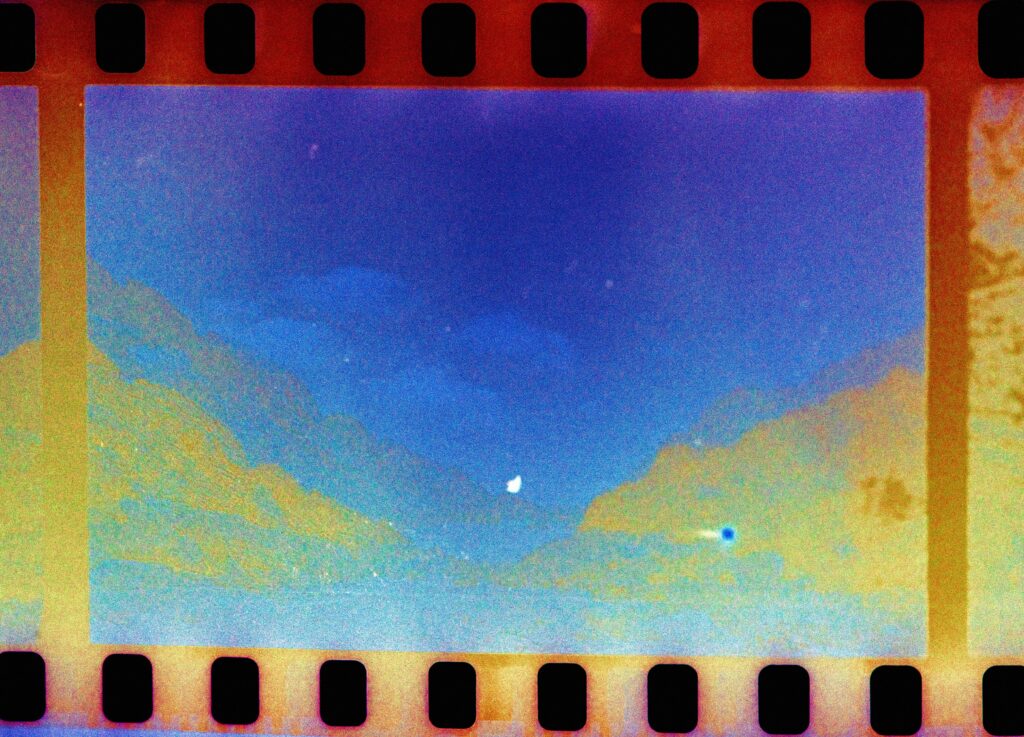
In Goodbye Me, George Tabakov delivers an immersive and emotionally resonant debut novel. This profoundly moving narrative explores the transformative power of self-love—not as a concession to our flaws, but as a celebration of our true selves. Through a deeply personal journey, Tabakov invites readers to embark on a quest for self-esteem and acceptance, illuminating the beauty of embracing who we are. What’s the worst seat on an aeroplane? I reckon it’s the middle seat, right at the back, next to the toilets. If you’re on an A380 doing a longhaul flight from Australia, the award goes to seat 57E in economy class. This exclusive seat offers: the heaviest turbulence – you get close to hitting the overhead luggage storage when it’s a good bounce; a lovely, lingering waft of shit and microwaved fish, and; unless you’ve popped a pile of sleeping pills, you’re stiff and miserable and very conscious of it for an entire 24 hours. I poked my head up from seat 57E and strained my neck to look out of the tiny window about four metres away. We’d gone over the English Channel so that meant we had to be close to Heathrow. As the A380 followed the Thames, I could make out endless terraced brick houses and motorways intersected by overpasses and more motorways. It was happening. I was about to land in London with no job, no friends, and no family. Absolute freedom. Or was it free-doom? I chucked on Smalltown Boy, Bronski Beat and played with my printed boarding pass, flicking it up and down in time with the song’s beat. I liked reading the boarding pass: Mr Peter Hristov Singapore Changi Airport – London Heathrow Seat 57E, Boarding Group E, Economy class Reading it made me feel like I had a plan in life, like I was a proper grown up. I placed the boarding pass into the seat pocket in front of me – I was probably going to forget that now – and scrolled through photos on my phone. I saw one of my old beat-up Mazda. Good ol’ Parker. I’d called the car Parker so that together we could be known as Peter Parker: Spider-Man. This was something I kept to myself, for obvious reasons. After I graduated from university in Brisbane, Australia a few weeks ago, I sold Parker and bought the cheapest one-way ticket across the world to somewhere relevant. The plan was that there was no plan. I wanted to experience extremes of emotion; to see the world for how it truly was and understand the human psyche. I sought rebirth and reintegration of my soul. I was dirty and I needed cleansing. And what else can you do when you’re messed up other than move somewhere else in an ignorant and desperate hope of forgetting every thought and experience that’s ever happened to you? If you’ve tried everything to fill the void inside of you, maybe the problem isn’t you, it’s the place you’re in. If you can’t fight, fly. I stood up and shuffled past the passengers sitting next to me. I chose to have my arse, instead of my crotch, in line with their faces as I squeezed by. It was more polite in case the plane jolted me and my crotch went into their faces. I got past my fellow weary souls aboard this flying cattle express and went down the aisle to use the toilet. A flight attendant’s voice came over the speaker which made me jump. ‘Good morning passengers. We’re now approaching London Heathrow. The captain has switched on the seatbelt sign. Can all passengers please return to their seats? Thank you.’ I took my chances and took the final steps to the toilet only for the flight attendant to appear from around a corner. ‘Please, sir, you need to return to your seat now,’ she said with her glowing, beautiful face and moisturised skin. ‘Oh, I’ll be really quick,’ I said with my dark, puffy eyes and sandpaper-like skin. She was a marshmallow fresh out of the packet and I was a speck of dried ash at the bottom of the campfire. ‘Sorry, sir, but the captain has switched the seatbelt sign on.’ ‘Oh, of course. Sorry.’ I gave the green vacancy sign on the toilet a final, longing look. ‘I’ll go back now then.’ I returned to my seat and held my piss for another 40 minutes, stressing my bladder in ways that would no doubt have long term consequences to my health. I got into the airport terminal and logged in to the WiFi. No messages. Great. I went through UK Border Control, waiting in each queue like the obedient farm animal I apparently was, and popped out of the airport. I lugged my suitcase onto the Piccadilly line and collapsed on a dusty blue seat. My goal was Oasis Hostel in Earl’s Court, which would take a while to get to from Heathrow so I could relax. The London Underground was – at best – dated, yet charismatic and – at worst – mice-infested and eardrum shattering. I looked at the deep-blue metal handrails of the Piccadilly line. They were clasped by hands with a mix of skin colours: the world was here. Well, the English-speaking Western world was. What’s it like to see London for the first time? Grey. So very grey. I looked out of the Tube window at the sky; its blue covered by a fluffy grey blanket. The buildings outside were a mix of concrete, 1950s council house tower blocks. The only things that broke up the grey were fried chicken shops with neon signs and bright laboratory-style lighting inside, and food delivery drivers on mopeds loitering in a pack on a side street or darting through traffic with panache. ‘Sorry to bother you, everyone.’ A skinny man with cuts all over his arms stood in the middle of the carriage, ‘But I’m homeless and lookin’ to get some money to find

SPACE RACE CHAMPIONSHIP – a unique, out-of-this-world, no-holds-barred sci-fi adventure for Young Adults. Good old-fashioned Formula One of the 90’s BUT IN SPACE! – BOOK CLUB. Chapter 1 – New Competitors “And it’s that season again where we get hyped for the biggest event of the year. The official host of the season is back, so for the next four months of this year you will have me – Pyra Summers – talking you over the Championship and the rumours, stats, and official news that makes itself known. And since I’m back on the airwaves, you can be sure that first piece of news you all look forward to will be coming sometime this week.” Pyra Summers of Radio Racer [15/2-0085] Two spacecraft waited together at the starting line within the cruiser’s hangar bay. The improvised line was nothing more than two mini cruisers parked either side of the two ‘craft. The first ‘craft was a Galaxy model – designation Y/26t. Oblong in shape, it had a rear rectangular section that fit around the control cabin’s viewshield – which was also oblong in shape. The other ‘craft was a Rotablade – designation G/0ld5n. A rectangular shape with rounded corners, it had a tubular rotating blade set either side that were as long as the ‘craft itself. These were auto-defence weaponry emplacements, but were disabled for the moment. This ‘craft also had an oblong shaped viewshield. The two mini cruisers flashed their lights, and the pilots of the ‘craft lifted them up and shot out of the hangar. There was a lot of clutter that the two racers dodged around – the pilot of the Rotablade doing better than that of the Galaxy. Numerous lights marked the way for the racers, and as the ‘craft sped past the lights changed colour. The Rotablade was in danger of smashing straight into the hulk of a damaged mini cruiser, but a quick drop was all that was needed to avoid it. There was the issue of more debris beyond it, but the Rotablade smashed through all of it without a care in the world. When the Galaxy hit this point, it rose above instead of going below, and seemed content to stay above most of the debris. It was forced back into the debris field when one of the sections of a cruiser floated into its path. It tried to dodge around the debris instead of going through it, which caused it to lose some speed. The distance between the two ‘craft had increased. The Rotablade was now within the outer limits of an asteroid field, effortlessly flying through them. After passing a few more, it was out of the field and hugging the plating of a cruiser as it travelled down the length of it. The next light indicated the start of a structure that the racers needed to travel through. It was large, looking as though it was a cruiser in the process of being built. Or at least had been, as it looked abandoned considering the angle of it. The Rotablade flew straight in, being completely aware of the girders that made up the structure. Despite that awareness, it didn’t stop the ‘craft from clipping one of them. The pilot was quick to react and saved it from colliding into a second. The Galaxy had now opened up in speed, having hit the asteroid field. It made it through without hitting any, but there had been a few close calls. Then it was flying the length of the cruiser. The Galaxy had made sure to keep a larger gap between the two than the Rotablade had. When it reached the structure, it slowed down to enter, and kept that speed while traversing through. The Rotablade was almost back to the starting cruiser, following the last few lights that created a winding path back to the hangar it had first started at. It was still paying no mind to the debris scattered around, and was able to bank and turn hard to avoid larger obstacles quickly. It slowed down to enter the hangar at the same time the Galaxy exited the structure of the abandoned cruiser. It took about a minute more for the Galaxy to follow the path and enter the cruiser to land as well. When both had landed, a results screen appeared with the time both had taken to complete the course. “And it’s a victory for the current champion!” a voice rang out. The screens of light dispersed, revealing two boys sitting on chairs with a controller in hand. “Will the current champion be beaten sometime soon?” the other of the two stated. “Tune in next time when we race in about… Five minutes?” “The current champion will not be beaten,” Tom Hughs said. “Not if the competition refuse to push their ‘craft to the max.” “I just don’t feel I can react fast enough,” Lee Johnson responded. “If you are used to the controls and the way something feels, you should be able to react no matter what speed you’re going.” “And I always try.” Lee looked around the room, picturing the race that had just happened. Then he looked back further to the last time he had pushed to near the max. It hadn’t ended well for him. The game was a tie-in to the most popular event of the world they lived. One which happened once every five years. As it turned out, this was the year in which the next was to happen. Lee hadn’t mentioned anything about it yet, but the news had confirmed the selection of the entrants for this year had happened. Within a week, those names would be revealed, and the hype for the event would begin fully. “So, are we getting to a new race?” Tom asked. “Yeah, sure,” Lee replied. “But wouldn’t it be great to be entered into the event for real?” “As much fun as it would be, what chance do we stand without

A story of ordinary lives against a backdrop of cosmic stakes, Duncan Fraser’s captivating and unique speculative fiction debut Terrarium Hostel explores themes of connection, belonging, and self-discovery. Day 1 – Keeping a Diary It was Octave one night in The Moscow Arms who told me about an article he saw in the paper about writing to aliens. I laughed at first but when he explained that this thing called the Sol Project was a deadly serious scientific enterprise in which ordinary people had been invited to participate, I became intrigued and sent off for an entry form. The Pinkland Space Agency is going to beam powerful radio signals towards a star about 35 light years away in an attempt to make contact with an alien civilisation they think is there. The signals will contain many different kinds of communications. There will be greetings and messages of peace from our insincere politicians and summaries of our knowledge from boffins in various fields. But also included will be diaries from average Joes like myself in order to give the aliens as wide an appreciation as possible of life in this neck of the galaxy. I received the entry form a couple of weeks ago and ever since then Octave has kept asking me if I have started the diary. So I bought a large notebook and today I begin writing in my diary for the first time. I have asked him why he wasn’t also going to do it, since he is so enthusiastic about me doing it. ‘My diary would never be accepted,’ he said. ‘Why not?’ I said. ‘The judges will all be Darlingtons,’ said Octave. ‘What’s that?’ I said. ‘Darlingtons?’ said Octave. ‘Culture vultures. Precious, self-important, loose-living bohemians. You know, arty-farties. Those kind of people wouldn’t consider a diary from someone like me for one second, no matter how good it was.’ ‘How do you know that?’ ‘Just take it from me,’ said Octave, ‘I just know. The kind of people who judge literary competitions are always Darlingtons.’ I had never heard of the term. Must be a Terrarium word. ‘And they are all absolutely stupid,’ Octave added. ‘Total dum-dums. They wouldn’t understand anything I wrote.’ ‘So why do you think my diary will be accepted but yours will be rejected?’ ‘Because you are a fresh-faced, innocent idealist,’ said Octave. ‘They like people like you.’ There is a great expectation that the messages will be understood because apparently the radio signals will also contain sophisticated translation instructions which will, if you have information systems that are compatible, enable you, my dear alien reader, to read the messages in your own idiomatic language and render my unearthly existence in terms that will appear bizarrely familiar to that of your own species. For example, whenever I mention my home star, I will write it as the name I know it as but it will appear in your text as Zeta Herculis B, which is your name for it. Obviously, I don’t call it that and have no idea what you call it. But that is how it will appear in the translation. Sometimes what you read will be a surprisingly accurate description of my reality. At other times though it will be an approximation or a symbolic interpretation of what my life is actually like. But I think the idea is to always make it consistent with a correlate in your world while remaining true to the spirit of my world. I will probably sound more articulate than I actually am but the software will always try and render an accurate representation of what I am saying and strike an emotionally faithful tone. The best analogues will always be used. For example, there is an intelligent aquatic creature in the oceans of our home planet that we call a …well, frankly, a vocalisation that is unlikely to be reproducible in your language … but which will be translated as a dolphin because that is the closest counterpart in your world. (If that last sentence appears even vaguely intelligible to you, I will be amazed because I don’t know if you have any intelligent aquatic creatures in your oceans. Do you even have oceans?) I also might mention at some point that I play a musical instrument. I don’t know how this will be rendered. Do you guys even have music? Even if you do, what are the chances of you having anything like the thing I play? Pretty remote, I would say. But the instrument I play will be described in terms that you can understand – so I play a guitar. Neither of us will know how good a translation that will be. But who knows? Your instruments and our instruments may be remarkably similar. My civilisation has made great advances recently in communications and many people are calling this translation technology the greatest thing we have ever achieved. If you are reading and understanding this, my dear alien reader, then I guess they might be right. I am sure it will at least be better than the old indecipherable hieroglyphics and mind-bending mathematical brainteasers that you poor aliens used to get from us. There is still a possibility though of some very bad errors. The artificial intelligence of the translation technology may find a suitable analogue in your world but not believe it and retranslate it into something preposterous to your ears. Apparently this has happened very occasionally in tests. So if you read the odd weird or unintentionally funny thing, put it down to the stupidity of artificial intelligence. But it’s not my job to explain the technical side. I don’t understand it anyway. My job is to describe my life. All the relevant explanations will be in the Space Agency’s ‘covering letter’, as it were. What they told me in the guidelines is to write as if the reader is completely familiar with my world. I am not to attempt explanations. Personally, I don’t



